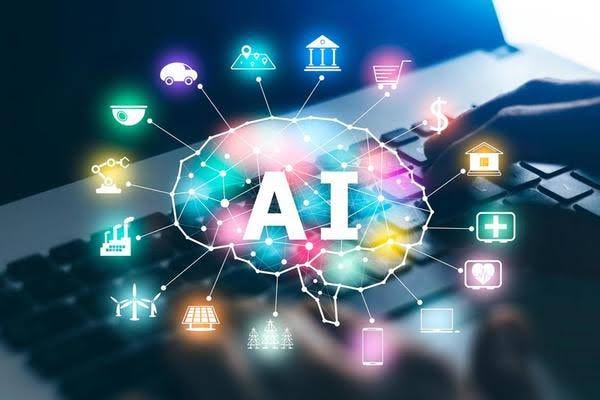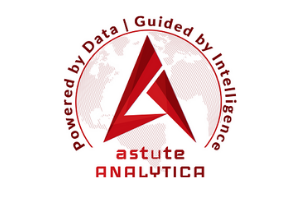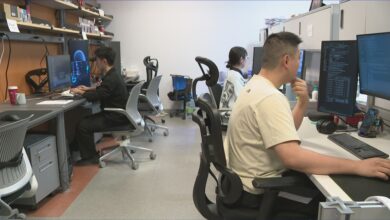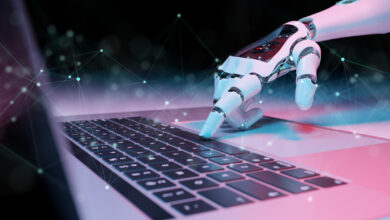The AI Revolution: How Artificial Intelligence Will Shape Our Tomorrow | by Satishlokhande | May, 2024

Artificial Intelligence (AI) has rapidly emerged as one of the most transformative technologies of the 21st century. From self-driving cars to virtual assistants, AI is poised to revolutionize nearly every aspect of our lives. This essay explores the profound impact AI will have on various sectors, including healthcare, education, the economy, and ethics, and discusses how these changes will shape our future.
AI refers to the simulation of human intelligence in machines programmed to think and learn. These systems can perform tasks that typically require human intelligence, such as visual perception, speech recognition, decision-making, and language translation. The development of AI has been driven by advancements in algorithms, computing power, and the availability of large datasets.
One of the most promising applications of AI is in the healthcare sector. AI has the potential to revolutionize healthcare delivery, making it more efficient, personalized, and accessible.
Diagnostics and Treatment: AI algorithms can analyze medical images and data with remarkable accuracy, often surpassing human doctors in diagnosing diseases such as cancer, heart disease, and neurological disorders. For example, Google’s DeepMind has developed an AI system that can diagnose eye diseases with high accuracy by analyzing retinal scans.
Personalized Medicine: AI can help tailor treatments to individual patients by analyzing genetic information and other personal health data. This approach, known as precision medicine, aims to develop targeted therapies that are more effective and have fewer side effects.
Administrative Efficiency: AI can automate administrative tasks in healthcare, such as scheduling, billing, and patient record management, allowing healthcare providers to focus more on patient care.
The education sector stands to benefit significantly from AI, which can enhance both teaching and learning experiences.
Personalized Learning: AI can create customized learning plans for students based on their strengths and weaknesses. Adaptive learning technologies can adjust the difficulty level of tasks in real-time, ensuring that students remain engaged and challenged.
Virtual Tutors and Teaching Assistants: AI-powered virtual tutors can provide additional support to students outside of the classroom, offering explanations and answering questions. Similarly, AI teaching assistants can help with grading and administrative tasks, freeing up teachers to focus on instruction.
Access to Education: AI can democratize education by providing high-quality learning resources to students in remote or underserved areas. Online platforms powered by AI can offer courses in multiple languages and adapt content to different cultural contexts.
The economic impact of AI will be profound, affecting jobs, productivity, and economic growth.
Automation and Job Displacement: While AI can increase efficiency and productivity, it also poses a risk of job displacement. Many routine and repetitive tasks in industries such as manufacturing, logistics, and customer service can be automated, potentially leading to job losses. However, new jobs may be created in AI development, maintenance, and oversight.
Economic Growth: AI has the potential to drive significant economic growth by improving productivity and creating new markets and industries. For instance, AI can optimize supply chains, reduce waste, and enhance decision-making processes, leading to cost savings and increased output.
Workforce Transformation: The workforce will need to adapt to the changes brought by AI. This will require reskilling and upskilling workers to take on new roles that AI cannot perform, such as those requiring creativity, emotional intelligence, and complex problem-solving.
As AI becomes more integrated into society, it raises several ethical and social concerns that must be addressed.
Bias and Fairness: AI systems can perpetuate and even exacerbate existing biases if they are trained on biased data. Ensuring fairness and avoiding discrimination in AI applications is crucial. This requires developing transparent algorithms and implementing rigorous testing and monitoring processes.
Privacy and Security: The widespread use of AI involves collecting and analyzing vast amounts of personal data, raising concerns about privacy and data security. Safeguarding this information and ensuring that AI systems are transparent and accountable is essential to maintaining public trust.
Autonomy and Control: As AI systems become more autonomous, questions arise about the extent to which humans should control these systems. Striking the right balance between human oversight and machine autonomy is critical to ensuring that AI is used responsibly.
Economic Inequality: The benefits of AI could be unevenly distributed, potentially widening the gap between rich and poor. Ensuring that the advantages of AI are accessible to all sectors of society is important to prevent further economic inequality.
The future of AI holds immense possibilities, but it also requires careful consideration and management to ensure that its benefits are realized while minimizing potential risks.
Advancements in AI Technology: Continued advancements in AI technology, such as more sophisticated machine learning algorithms and improved natural language processing, will expand the capabilities and applications of AI. This will likely lead to further integration of AI into everyday life and the development of new and innovative AI-driven solutions.
Interdisciplinary Collaboration: Addressing the challenges and maximizing the benefits of AI will require collaboration across various disciplines, including computer science, ethics, law, and social sciences. Policymakers, researchers, and industry leaders must work together to create frameworks and guidelines for the ethical use of AI.
Education and Public Awareness: Increasing public awareness and understanding of AI is crucial. This includes educating people about the potential benefits and risks of AI, as well as promoting digital literacy and critical thinking skills. Ensuring that the public is informed and engaged will help shape the development and deployment of AI in a way that aligns with societal values.
Regulation and Governance: Governments and international bodies will need to develop regulatory frameworks to govern the use of AI. This includes establishing standards for data privacy, security, and ethical considerations, as well as creating mechanisms for accountability and oversight. Effective regulation will help ensure that AI is developed and used in a manner that is safe, ethical, and beneficial to society.
Conclusion
Artificial Intelligence is set to reshape our world in profound ways, offering unprecedented opportunities and challenges. From revolutionizing healthcare and education to transforming the economy and raising ethical questions, the impact of AI will be far-reaching. As we move forward into this new era, it is crucial that we navigate the complexities of AI with careful consideration and a commitment to ensuring that its benefits are realized for all of humanity. By fostering interdisciplinary collaboration, promoting public awareness, and developing robust regulatory frameworks, we can harness the power of AI to create a better and more equitable future.



